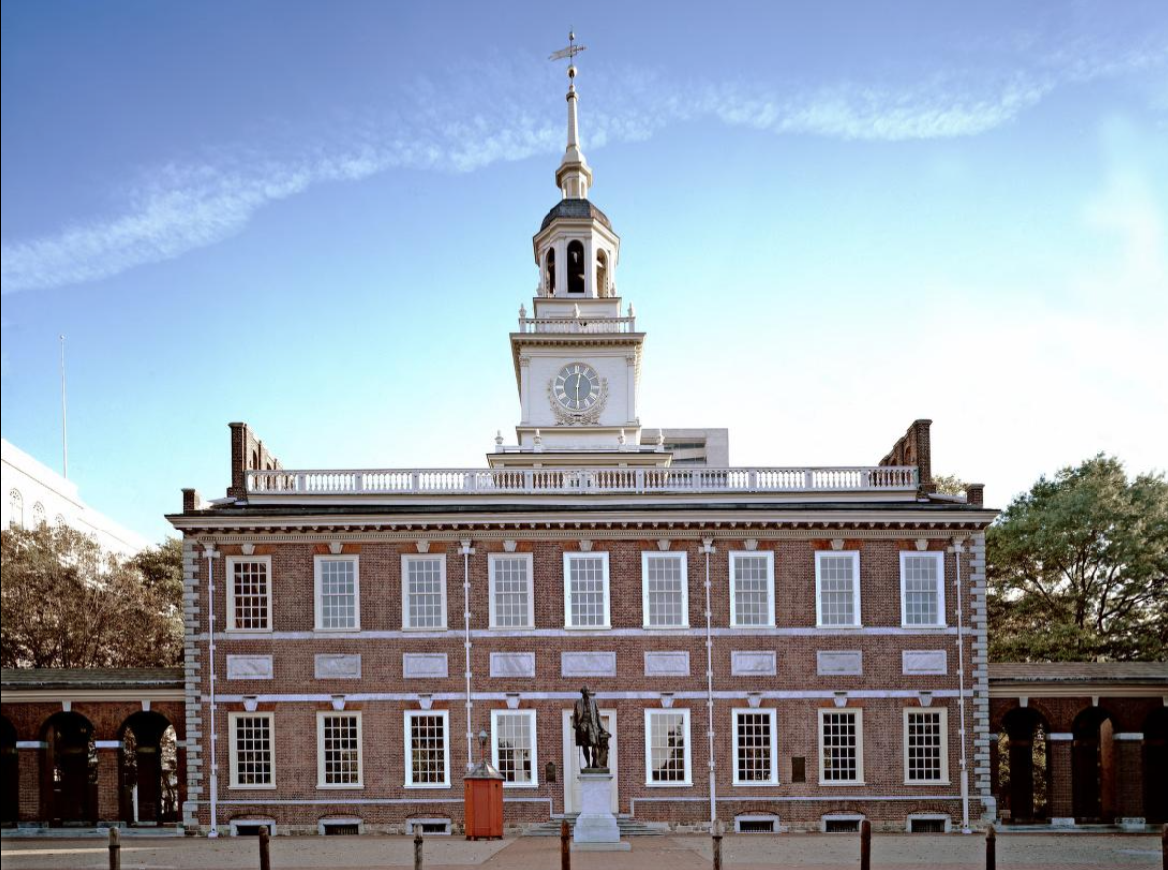July 4, 1776: A day unparalleled in human history

Independence Hall in Philadelphia / Image: Library of Congress
For most of human history, a king ruled his kingdom with absolute power and was not challenged. Most people accepted this royal system without checks and balances on the king. On July 4, 1776, there was a dramatic and profound change in the world.
The united thirteen British colonies in North America decided that they had endured enough tyranny from King George III. In the city of Philadelphia, Pennsylvania, on July 4, 1776, the united colonies declared independence from Great Britain.
The drafters of the Declaration of Independence used meaningful and powerful words that are still relevant today. “We hold these truths to be self-evident that all men are created equal that they are endowed by their Creator with certain inalienable rights that among these are life, liberty, and the pursuit of happiness.” The founding fathers stated that the king had created an “…establishment of an absolute tyranny over these states.”
The founding fathers knew that words alone would not guarantee independence. A successful American Revolution also needed a victorious Revolutionary War. The first battle of the war occurred on April 19, 1775, in Lexington, Massachusetts, and the last battle of the war was fought in Yorktown, Virginia, in October 1781. The French Alliance greatly contributed to the American victory.
Although Great Britain surrendered to the American states in 1781, true independence for Americans did not come until the successful conclusion of the War of 1812. After the Revolutionary War, the British were abusive and disrespectful to American sovereignty especially on the high seas. The War of 1812 was also known as the Second War of Independence.
The abusive actions by the British proved that independence was not a given. To maintain independence, the citizens of a country must be continually vigilant in protecting their independence.
Ironically, the questions of independence and the inalienable rights of life, liberty and the pursuit of happiness arose 86 years later in 1898. During the Paris Treaty negotiations following the Spanish-American War, the Americans eventually demanded control over all the Philippine Islands. The Americans thought that they had won the islands during the war and that they were entitled to colonize the Philippines.
A sizable percentage of the American population thought that expansionism, imperialism and colonization were contrary to the founding fathers and their founding documents. They wanted to know how a former colony, the United States of America, with its historical leadership against colonial rule, could become a colonizer.
Dennis Edward Flake is the author of three books on Philippine-American history. He is a Public Historian and a former park ranger in interpretation for the National Park Service at the Eisenhower National Historic Site in Gettysburg, PA. He can be contacted at: flakedennis@gmail.com

